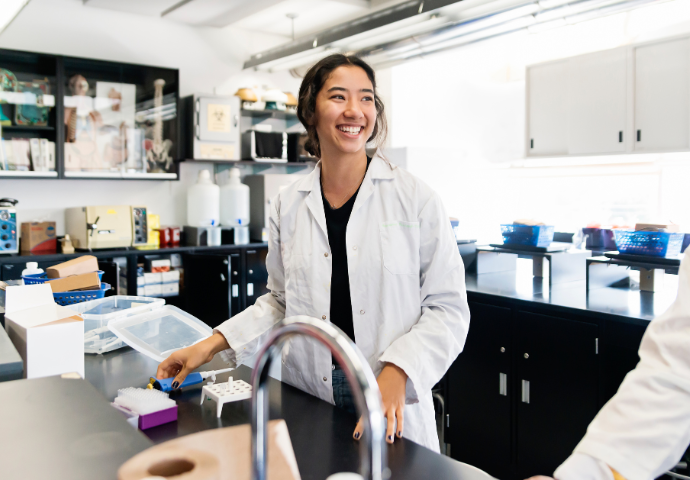This analysis, produced by the Centre for Business Research (CBR), at the University of Cambridge, adds further weight to calls for infrastructure that will ensure this growth is managed to be sustainable and spread to be more inclusive.
The research shows sustained high growth of employment across knowledge intensive sectors including life sciences and healthcare, information and communication technology and high-tech manufacturing. This is a familiar picture, but a more recent positive change is the strong post-Covid recovery of growth across other, non-knowledge intensive sectors. For example, transport, education, hospitality and retail.
Across the Cambridge city region - a 20-mile radius from the centre of Cambridge - knowledge intensive sectors grew employment by 5.7% over the latest year of data (2021-22 to 2022-23), led by an 11.1% increase in life sciences. The data also captures turnover, for which high-tech manufacturing was the standout for the Cambridge city region during this period with growth of over 18.7%.
In transport and travel the annual employment growth rate was 4.6%, a marked difference for a sector that has struggled significantly since the pandemic and which by comparison last year saw a decline of 3.9%.
The data is also collected across the wider Cambridgeshire and Peterborough region, where overall employment growth is also strong with a 4.4% growth over the latest year of data. Districts across this region also saw positive and encouraging growth, for example, high-tech manufacturing in Huntingdonshire grew employment by 5.7% in the latest year and increased significantly by 4.6% in Peterborough. In Fenland, employment in the transport and travel sector grew by 9.7%, and in East Cambridgeshire the distribution and retail sector grew by 3.8%.
These growth figures are indicative of the diversity of the economy in the region and showcase positive outcomes in sectors across the region. However, it is essential to note that the data presented covers the year to April 2023, and excludes the latter half of 2023 when the UK entered a technical recession.
Still, the Cambridge city region has remained consistently strong despite the various challenges faced by the wider UK economy, with employment here growing by an average of 3.5% per year over the last six years. In addition, BRES figures show that over the last ten years, employment in the Mayoral Combined Authority region has increased by 1.8% per annum compared to Great Britain’s 1.4%. Greater Cambridge has performed even stronger, with 2.2% per annum growth over the last ten years.
Dan Thorp, Chief Executive of Cambridge Ahead commented: “This is gold-standard data showing what is really happening in the Cambridge economy, and across the wider Cambridgeshire and Peterborough area. It shows that the national attention on Cambridge is more than warranted, and our opportunity now is to showcase how national and local leaders can come together to unlock a city region’s full potential.”
Cllr Elisa Meschini, Chair of the Greater Cambridge Partnership, added: “It is fascinating as always to see and read the data of how our local economy is evolving and developing to meet the challenges of the 21st century. In our case, we can see the continued growth of life sciences building on the world leading knowledge and expertise we have in our area, even more positively we can also see an upturn in transport, education and retail. This reflects what we hear on the ground, that our economy is strong, diverse and thriving – the task for bodies like the Greater Cambridge Partnership is to provide the infrastructure and support to ensure we all benefit and that we make this area a better place to live.”
Nick Finlayson-Brown, Partner and Head of Mills & Reeve’s Cambridge office, said: “We’re proud to co-sponsor the publication of the most recent Cluster Insights by the leading team at the CBR. The detailed, insightful and thought-provoking analysis produced in the report is crucial to understanding and promoting the ongoing economic and social evolution of Cambridge, the wider region’s markets and the sectors that make them famous. The report provides invaluable empirical evidence to showcase the ongoing strength of the economy but also, and crucially, its future potential to the business community working in and attracted to investing in the city, its clusters and wider region as well as to local and central government.”
Kirsty Gill, Chief People Officer of Arm, said: “As the location of our global headquarters and a major talent hub for Arm, it is encouraging to see this latest research into the sustained growth in Cambridge and the surrounding area. Maintaining and improving the quality of life for our people and the broader Cambridge community remains a major focus for us, and data such as this annual report from Cambridge Ahead is critical to monitoring and understanding the challenges and opportunities that face this dynamic, growing city.”
Image: martinedoucet, Getty Images Signature via Canva


